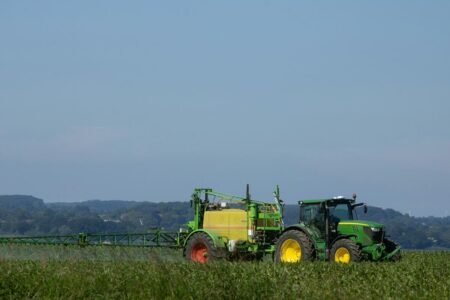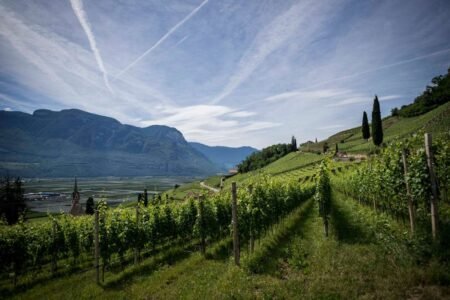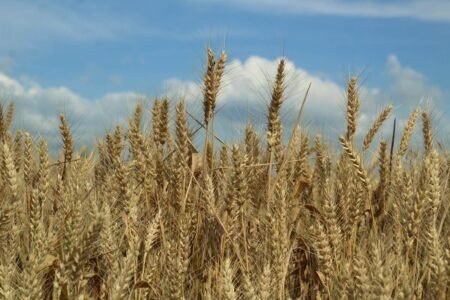The European Commission presented on 7 September a EUR 500 million comprehensive package of measures to support European farmers.
Advertisement
1) To help farmers in short term cash flow difficulties
a) Targeted aid: The most significant part of the comprehensive package will be provided to all MS in envelopes to support the dairy sector. The Commission is working on a package of targeted aid for all Member States, having particular regard to those Member States which have been most affected by market developments. The Commission will shortly finalise the distribution key for these national envelopes.
b) Advancing Direct payments: Member States can pay up to 50% of their direct payment envelope from 16 October, provided that the necessary controls have been carried out. (Usual earliest date is December 1 but existing rules already provide this flexibility.) The Commission will now propose toincrease this to 70% – draft legislation in preparation.
c) Advancing certain Rural Development payments: Member States can already advance the area and animal-related payments for rural development (such as agri-environment, organic farming, areas with natural constraints, animal welfare) by paying up to 75% from October 16. The Commission willnow propose to increase this rate to 85%.
In addition to this:
d) Financial instruments: The Commission is working closely with the European Investment Bank (EIB) on options for establishing financial instruments (NB Rural Development Programmes can be used for this). For example, Commission is working on designing Financial Instruments where re-payment schemes are linked to commodity price developments.
e) Income stabilisation tool: Member States/regions already have the option to include an income stabilisation tool in their Rural Development Programmes. Only a few Member States have programmed this tool, but it could be introduced by others with the next modification of Rural Development Programmes.
2) To address themarket imbalance – Stimulating demand, reducing supply
a) Extending & Enhancing Private Storage Aid: In order to ease market pressure, the Commission has already extended the private storage aid and public intervention periods for butter and skimmed milk powder until next year. The Commission is now working on an enhanced scheme for SMP focusing on higher aid levels as well as on ways to ensure that the product is stored for the appropriate time to make the scheme even more effective in alleviating pressure on the supply side.
b) A new private storage scheme for pigmeat: the Commission is ready to table a proposal to open a new PSA scheme for pigmeat.
c) Promotion programmes: The Commission will increase the promotion budget in 2016 in addition to the 81 million already committed. A specific part of that enlarged budget will be reserved for the dairy and pigmeat sectors. The reformed promotion policy which also foresees higher co-financing rates (from 50 to 70-80%), a broader list of eligible products (including generic pigmeat promotion on the internal market), and a gradually increasing budget (up to 200 million in 2019).
d) Information on Promotion opportunities: The Commission will set up with Member States an extensive series of information workshops on the new promotion rules to secure the best possible use of increased the new rules and the increased funding.
e) Strengthening of the Milk Market Observatory: For better market transparency, the Commission will continue to reinforce the Milk Market Observatory by further focusing on the type of information, the accuracy and the prompt publication of this information. Already over 30 000 people consult the new data on the MMO website every Thursday and the aim is to make the MMO the benchmark for the EU milk market.
f) Bilateral Trade Agreements: The EU has worked hard on a range of free trade agreements (the Balkans, CARIFORUM, Central American countries, South Korea, Morocco, Peru, Colombia, Moldova, Georgia, Ukraine), the most recent being with Canada and Vietnam. In the trade agreement with Vietnam, dairy tariffs will be reduced from a maximum of 19% to zero within 3-5 years. Negotiations are ongoing with significant markets such as the USA and Japan.
g) Tackling non-tariff barriers which block EU exports to non-EU markets: The Commission (DG SANTE, DG AGRI, DG TRADE) is working to resolve a number of Sanitary & PhytoSanitary (SPS) and technical barriers to trade (TBT) issues with third country partners. In 2014, specific SPS trade barriers for dairy products were resolved with Chile, China, Japan and S. Korea. Most recently, for African Swine Fever, the USA has accepted the EU regionalisation decisions, i.e. instead of listing Member States or regions individually, it will list any restricted zone in the EU established by the EU or any EU Member State. In concrete terms, this means that meat from cattle, sheep, pigs and goats slaughtered in Lithuania and processed in certified Lithuanian establishments is now eligible for export to the USA. The EU has also taken Russia to the WTO over its totally disproportionate EU-wide ban on all pigmeat products linked to African Swine Fever in 4 Member States.
h) Opening new markets: Commissioner Hogan himself has scheduled a number of promotion visits to third countries where important opportunities exist for EU agriculture and to help open doors for new exports. Already, Commissioner Hogan is committed to visits to China and Japan later this year and to Mexico and Colombia early in 2016.
In addition to this:
i) Using Rural Development Programmes: The 2014-2020 Rural Development Programmes also include 600 million EURO for quality products and promotion. Member states/regions have the possibility of increasing this envelope, provided that this is in line with the programmes’ underlying strategy. Moreover, Member States/regions have several other options under their RDPs to provide a wider range of effective measures to boost competitiveness, to preserve and valorise specific local production systems, or to accompany the restructuring of a sector, such as the dairy sector. There is also the option for support for restoring agricultural production potential damaged by natural disasters and catastrophic events, which has potential for the pigmeat sector, in order to have a ready-to-use measure at hand in case of an outbreak such as the African Swine Fever.
(3) To tackle supply chain challenges
a) Establishing a new High Level Group: The Commission will set up a new, dedicated High Level Group to focus on a number of specific and clearly defined issues. This will include credit for farmers, and financial and risk hedging instruments such as futures markets for agricultural products. On this HLG, Commissioner Hogan will work closely with Commissioner Bienkowska. (A High Level Group normally comprises senior officials from national Ministries.)
b) Evaluating the Milk Package and encouraging wider use of certain measures: The Commission will bring forward to 2016 the report on the (2012) “milk package” originally foreseen for 2018, in order to consider its possible prolongation and improvement, including the extension of its provisions to other sectors. Introduced as a response to the 2009 dairy crisis, the Milk Package provides a range of measures aimed at giving producers a stronger position in the dairy supply chain, such as written contracts, collective bargaining, encouraging Producer Organisations, but the take-up has been slow in some regions because market conditions have been relatively favourable since 2012. The Commission will also promote similar provisions under existing rules for other sectors, e.g. for producer organisations etc.
c) Improving exchanges of experience, e.g. on unfair trading practices: The Commission will also organise a range of meetings to discuss experiences and share best practices. For example, on unfair trading practices, discussion can look at how the code of conduct is working and the experiences in Member States such as Spain and the UK. There is also the potential for events to discuss financial and risk hedging instruments, such as forward contracts, futures markets, etc.
(4) To tighten the link between agriculture and society at large:
a) Addressing the needs of vulnerable groups: In the context of the current refugee crisis, there are ways of addressing the nutritional needs of refugees, for example through the distribution of dairy products.
b) The scheme for school fruit and school milk: Under the present School Milk Scheme, there is room for increasing the use of the EU support for milk distributed to schoolchildren. (Unlike for the School Fruit Scheme, there is no financial ceiling per Member State.) Moreover, the Commission will work with the Council and parliament to try and reach an early conclusion in the ongoing negotiations for a wider school scheme currently in negotiation.
In addition to this:
State Aids: There are also a number of tools that can be mobilised at national level. Member States have the possibility of providing national funding under the de minimisrules (below 15.000 for agricultural primary production or 200.000 for marketing and processing activities over 3 years). Even outside RDPs, Member States may use State aids, for example aid for investments, for agri-environment-climate or animal welfare commitments, for organic farming, or for the participation in quality schemes, etc. Under certain conditions, State Aids can also cover promotion, the closure of production capacity and, under strict conditions, rescue and restructuring aid for companies in severe financial difficulties, etc.







